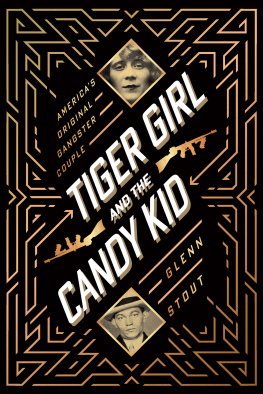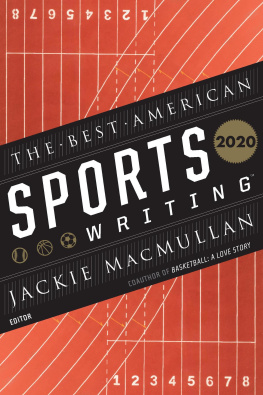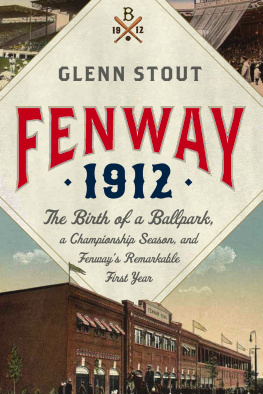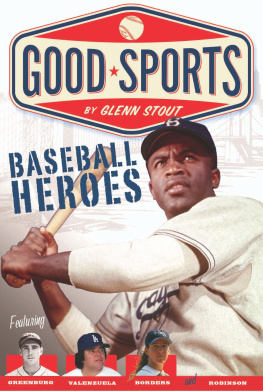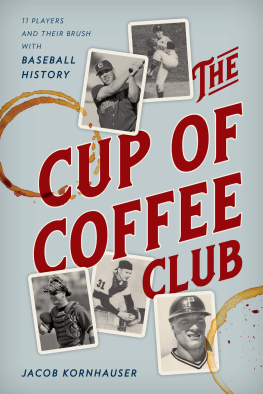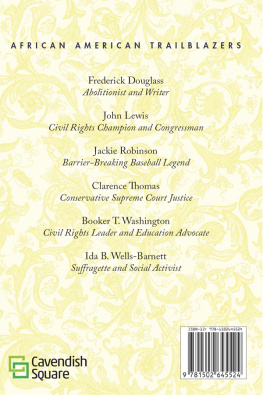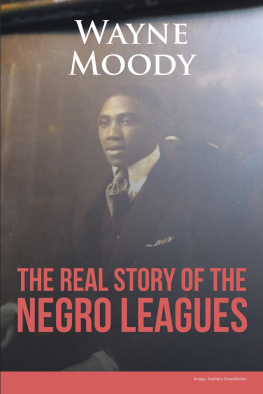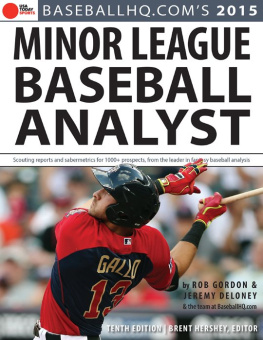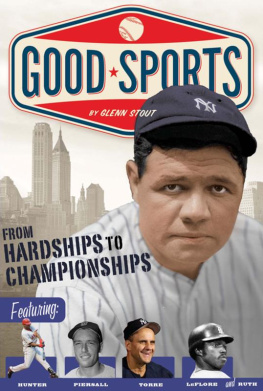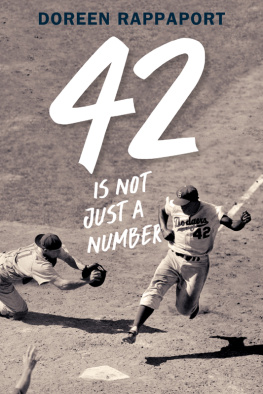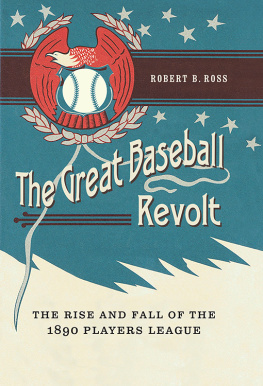Text copyright 2010 by Glenn Stout
All rights reserved. For information about permission to reproduce selections from this book, write to Permissions, Houghton Mifflin Harcourt Publishing Company, 215 Park Avenue South, New York, New York 10003.
www.hmhco.com
Library of Congress Cataloging-in-Publication Data is on file.
ISBN 978-0-547-41708-0
eISBN 978-0-547-57758-6
v2.0914
All photos courtesy of AP Images
This book is dedicated to
I LAN B RYANT
N ICHOLAS B ORTZFIELD
J OHANNES B ORTZFIELD
E THAN C RELLER
B RADY C RELLER
and all my other young friends
and readers who are Good Sports.
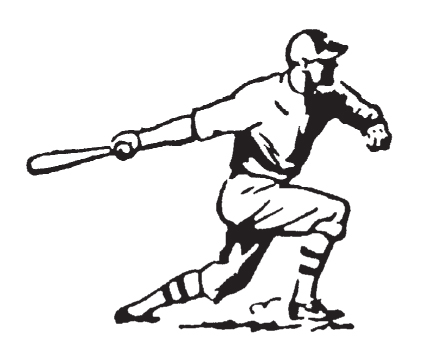
Introduction
Baseball has long been known as the national pastime, a game for all Americans.
Unfortunately, for many years this simply was not true. Not everyone has always been welcome at the ballpark. At various times professional baseball has either banned certain groups of people from playing or made it very, very difficult for them to play. And although America is a diverse country with people of many different ethnic backgrounds, until very recently the stands at major league ballparks have not looked like America.
Baseball Heroes tells the story of some baseball pioneers, three men and a womanyes, a womanwho fought hard for their own right to play baseball so that everyone could participate in our national pastime. These pioneers were all good sports who played the game the right way and for the right reasons.
One of the first Jewish players in professional baseball, Hank Greenberg had to ignore vicious slurs and namecalling from his opponents. Jackie Robinson, the first African American to play major league baseball in the twentieth century, went through a similar experience. Mexican pitcher Fernando Valenzuela was one of the first big Latino stars in baseball and helped make the game popular with Latino fans in America. And as the first woman to play baseball both in college and professionally, Ila Borders had to convince everybody that she was good enough to play.
Each of these pioneers helped make baseball the game it is today, a game that everyone with the talent to play also has the right to play. Fans of every imaginable background turn out by the thousands to cheer their favorite teams and players. While all of these pioneers recognized that everybody is an individual and everyone is different, they also knew that in every way that is truly important, everybody is the same, and our differences should not be enough to divide us or keep us apart.
Because of them, baseball is now truly Americas national pastime.
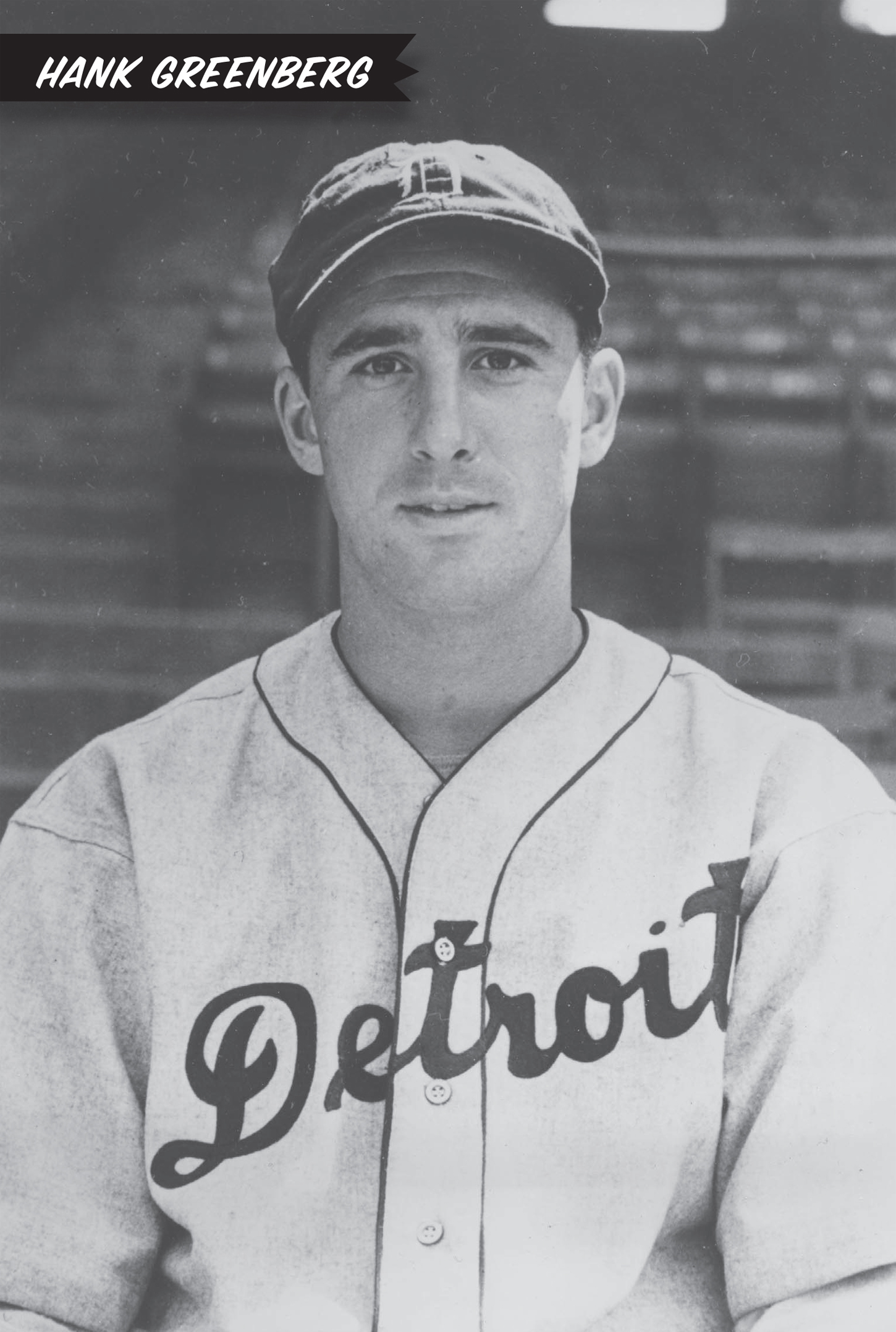
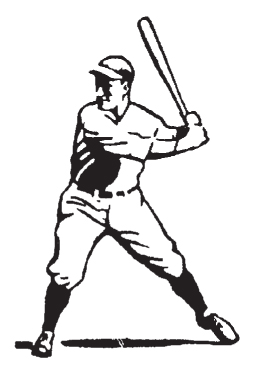
Hanks Lasting Lesson
W HEN FUTURE H ALL OF F AMER H ANK G REENBERG took a big swing of the bat and hit the ball square, then watched the ball grow small as it soared through the air and dropped over the fence and into a sea of hands for a home run, he loved hearing the cheers of the crowd.
And when he stepped to the plate with two outs and runners on base and swung through a pitch for a strikeout, nearly falling over from the effort, he expected to hear the fans boo as he slowly walked back to the bench, dragging his bat behind him.
That was okay with Hank. Whether he was the hero or the goat, he only wanted to be judged by his performance on the field. He knew that if he accepted the cheers, he would also have to put up with the occasional jeer. Thats part of playing any sport.
But there were also times when Hank Greenberg was on the field that he heard something else, not only from the fans in the stands and his opponents, but even from his own teammates, words that had nothing to do with how well he played but that attacked him for who he was as a person.
Dirty kike!
Lousy sheeny!
Hey, Jewboy!
When Hank was the target of taunts and insults simply because he was Jewish, he tried not to let the angry words bother him. He knew they were spoken in ignorance. If anything, such insults only made Hank more determined to do well and demonstrate by his example that Jewish athletes had just as much right to play baseball as anyone else. Each time he stepped on the baseball field, he knew that he was not just playing for himself, or his family and his team, but for all people who faced prejudice and bigotry because of their beliefs.
Hank Greenberg was born in Greenwich Village, a crowded neighborhood of immigrants, in New York City on New Years Day in 1911. His parents, David and Sarah, had big dreams for their son. They had both immigrated to America only a few years before from Romania in Eastern Europe. In their home country David and Sarah had both been poor, and because of prejudice against Jews they had had very little opportunity to get ahead. America, they had been told, was different, a place where people could succeed through hard work no matter what their background was.
That was true for David Greenberg. After only a few years of hard work in the United States, David started his own business, a cloth company that supplied clothing manufacturers.
But life wasnt perfect. All the Greenbergs wanted for their four children was the opportunity to send them to college. But first the childrenthree boys and one girlhad to get through primary school. And the Greenbergs soon learned that prejudice against Jews, known as anti-Semitism, also existed in America.
Hank Greenberg found this out while he was still young. Each morning when he prepared to leave his apartment building and walk the few short blocks to school, his stomach began to tie itself in knots. The most difficult parts of each day were his trips to and from school. He had to be careful.
As he walked down the stairs of the Greenbergs apartment building and out onto the sidewalk, Hank would glance around nervously. Nearly every day some of the older boys in the neighborhood would lie in wait for him. Greenwich Village was a tough neighborhood anyway, but for a young Jewish boy, it was especially tough. Most of the other kids in the neighborhood were the children of Italian or Irish immigrants. They had not known many Jews before, and they were suspicious of people who were different. That was why they picked on Hank and the other Jewish children in the neighborhood.
As Hank walked down the street, he tried to be cautious, but on many occasions as soon as he turned a corner or passed an alleyway, hed find himself surrounded by older boys.
Then it would start. One of the boys would call Hank a name.
Young Hank tried to ignore the taunts and keep walking, but then a boy would block his way. Sometimes one boy would stick out his foot while another pushed Hank from behind and sent him sprawling. Or several boys would jump on Hanks back and beat on him with their fists until he fell to the ground. Sometimes he was even beaten with a heavy woolen sock filled with stones while the boys called him names.
Hank tried to fight back, but he was usually outnumbered, and the other boys were much older and bigger. Often there was little that Hank could do but cover his head and take it, then run to school as fast as possible. And when he left school to walk home, he would have to worry about being attacked again.
That didnt stop Hank. He knew his education was important, so no matter how many times the boys came after him and how afraid he felt, Hank went to school and tried to do his best.
Next page

